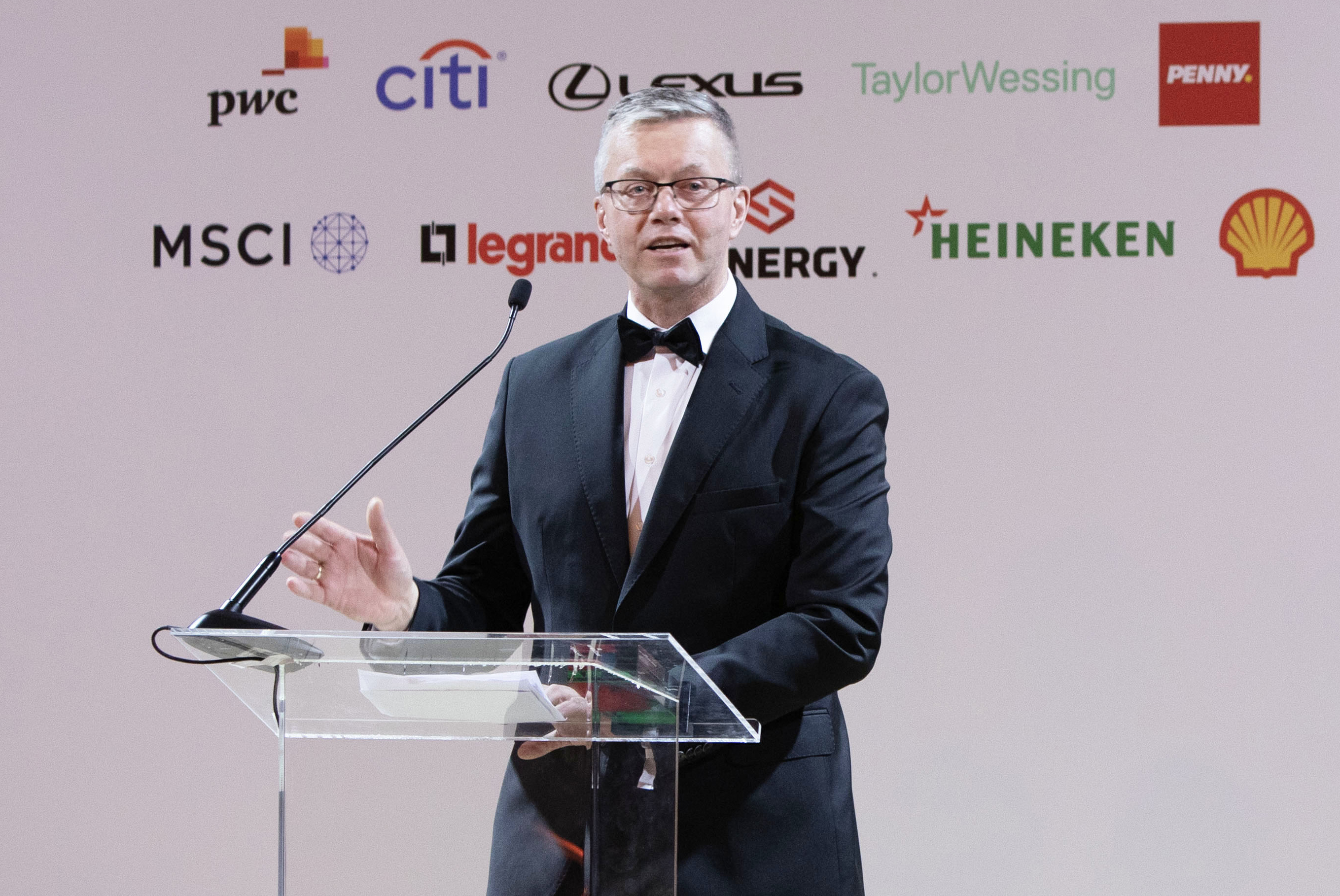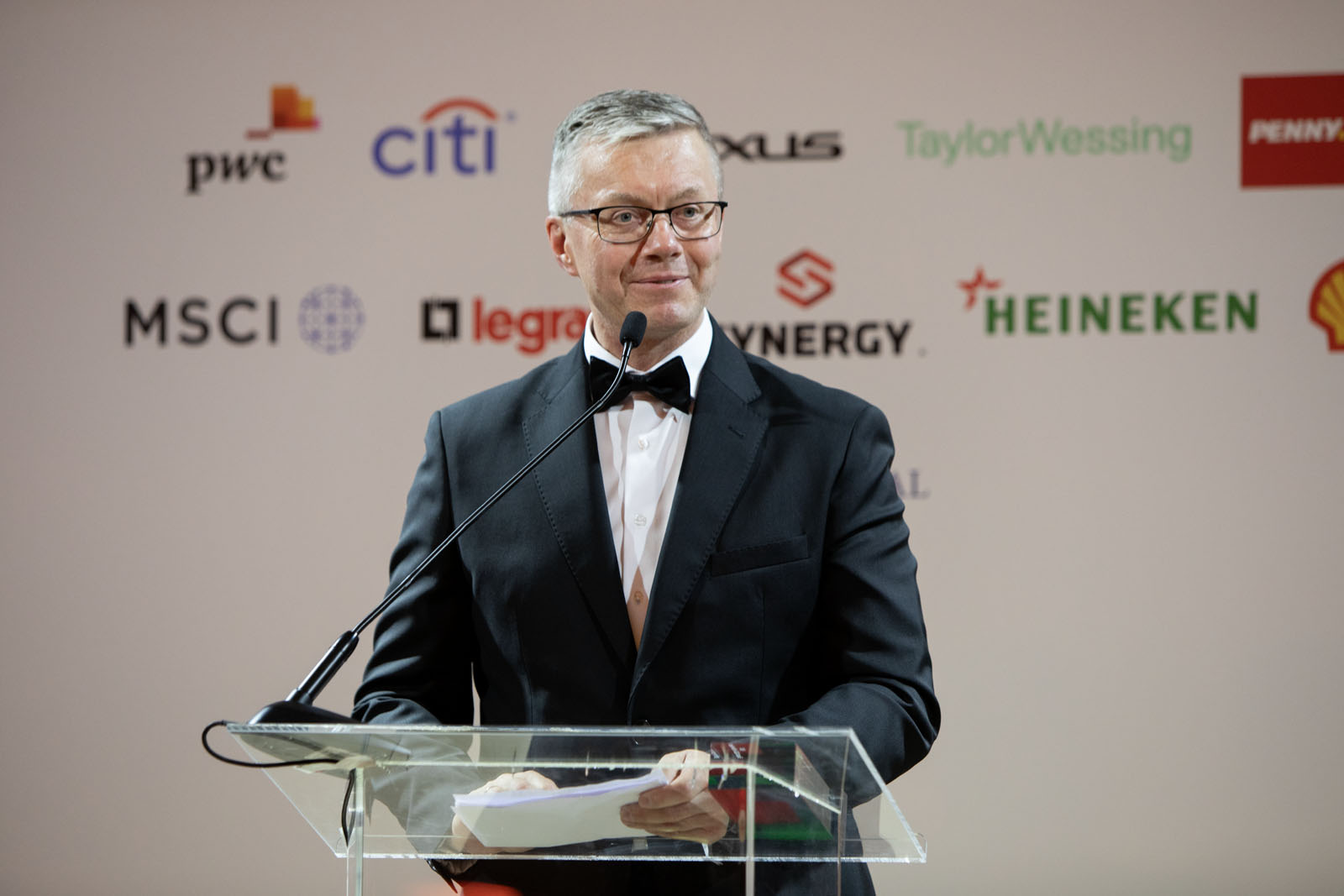Colliers Celebrating 25 Years of “Same Spirit, New Ideas”

Colliers International Hungary is marking 25 years of business. We asked managing director Tim Hulzebos how it, and the markethas changed.
How has the Hungarian market changed in the 25 Colliers International has been on the scene?
The first office buildings in the early 1990s were mostly built by foreign developers with strong ties with construction companies, so we were left with not too good buildings in rather central locations. The market stood at around 40,000 sqm per year and somebody had the crazy idea to develop Váci út 35, which was perceived as a hopeless location; look at where the Váci Corridor is now! Most importantly, until 2000, developers could not sell their projects as there were no investors. It was only at around that time that the first buyers, mostly from Germany and Austria, started to become active outside their own countries and created special CEE funds. Shopping was done in Váci utca and Budagyöngye, and key logistics were done out of Depot. I remember my first deals, the acquisition of a piece of land for McDonald’s in Gyál to build a distribution facility with cooling, and the sale of land in Győr along the M1 to Metro C&C .Obviously, all sectors have strongly developed over the years, although always in a way that could be overseen; Budapest never really “boomed” in my opinion. There have been times of a temporary imbalance between demand and supply, especially in the office markets during the financial crisis and the residential market in the period around 2010.
And how has Colliers changed in that time?
Colliers started off originally as a franchise operation with a strong focus on brokerage, given its American/Canadian background. Over time, we learned to listen well to our clients and their problems. You do that by asking relevant questions and, based on the outcome of the discussions, we propose property solutions; we are not trying to sell buildings or space anymore.
How many people are employed in Hungary now, and what services do you offer?
We employ more than 50 people including facility management, and offer a full line of services in the industry from agency in all markets, valuation and consultancy, investment services and property management in the widest sense of the word. It makes me proud that we are very successful in certifying buildings (LEED, BREEAM) with clients like Citibank, Ikea and National Instruments and numerous office developers in Budapest.
How much of your business is Budapest-based and how much is conducted in the rest of the country? What is the next biggest market after the capital, and how is this changing?
The vast majority, let’s say 90%, of the business is in Budapest, as it is the administrative, financial and logistical capital of the country, with about 50% of GDP created there. Only in the industrial field is it different; there are weeks when I hardly see our team in the office, as they are on the road to and from the countryside. Debrecen, with its university and skilled workforce, is making a strong effort to put itself on the map as an alternative BPO/SSC location, and we are starting the marketing of a 25 000 sqm Class “A” building soon. Győr and surroundings, with the impressive Audi factory, claims top spot in the industrial market.
What is the biggest deal Colliers has worked on its 25-year history in Hungary?
There were many in all sectors, numerous in the office market, lots of bigger land transactions in the industrial and logistic sectors, and big valuation mandates on a regional level. From the recent past, we are particularly proud of having advised ITS to their 20,000 sqm move to Skanska’s Mill Park, and the sale of the iconic Park Atrium building (my former workplace) and Nordic Light.
The company has obviously seen a lot since 1992. Was the financial crisis from 2008 onwards the most difficult challenge? How did the company survive that period?
Crises in the service industry can be caused in many ways, for example the loss of key staff or an entire team, the loss of a major client or a (sub)market breakdown. The financial crisis of 2008 was definitely a great challenge to us – and the entire industry – although its real effects only hit us in 2011-2013. We survived and in fact did not write any red figures, partly as our more flexible remuneration system allowed us to keep our staffing costs under control.
Why should someone choose Colliers?
“We are fun to work with and to work for” is one of our key slogans. At Colliers, we decide on things locally and you can have a strong input in the result of your work; creativity is rewarded and if you do well, you get very well paid: Enough reasons to join us, I would say! How do you see the Hungarian market developing? What will it look like when you are celebrating 50 years in business in Hungary?
Good question; obviously, there are certain international trends ongoing based on the implementation and more intensive usage of new IT solutions and technical development, and simultaneously the local market is further maturing and developing. So, either we will all work and shop from home, or we will drive with our electric cars to modern office towers, a number of which are now under planning, or most likely a combination of the two.
Tim Hulzebos mini bio
With more than 20 years’ real estate experience, Tim Hulzebos is currently managing the office of Colliers International in Budapest. Living here since 1995 he actively takes part in CEE property markets. He has held Colliers Hungary’s managing director position from August 2010. Hulzebos is a Dutch citizen and obtained his economist diploma at the Erasmus University of Rotterdam in 1993. He worked two years for an international trading company in the leisure and bicycle business in Prague. Between 1995 and 2000 he worked for DTZ Hungary as senior agent, and later as head of agency. From 2000 until 2006 he was working for DTZ in a regional role involved in business development, cross border investments and corporate real estate services, and was part of the regional management team. In May 2006, he became development director at ING RED, where until 2009 he was involved in Projects like the Allee Shopping Center and Vörösmarty tér 1. In August 2010, he was appointed managing director of Colliers International Hungary, where he is responsible for the day-to-day running of the business, with a focus on the capital markets and business development. As a fluent German speaker, Tim has an extensive network in the German and Austrian property communities.
SUPPORT THE BUDAPEST BUSINESS JOURNAL
Producing journalism that is worthy of the name is a costly business. For 27 years, the publishers, editors and reporters of the Budapest Business Journal have striven to bring you business news that works, information that you can trust, that is factual, accurate and presented without fear or favor.
Newspaper organizations across the globe have struggled to find a business model that allows them to continue to excel, without compromising their ability to perform. Most recently, some have experimented with the idea of involving their most important stakeholders, their readers.
We would like to offer that same opportunity to our readers. We would like to invite you to help us deliver the quality business journalism you require. Hit our Support the BBJ button and you can choose the how much and how often you send us your contributions.








